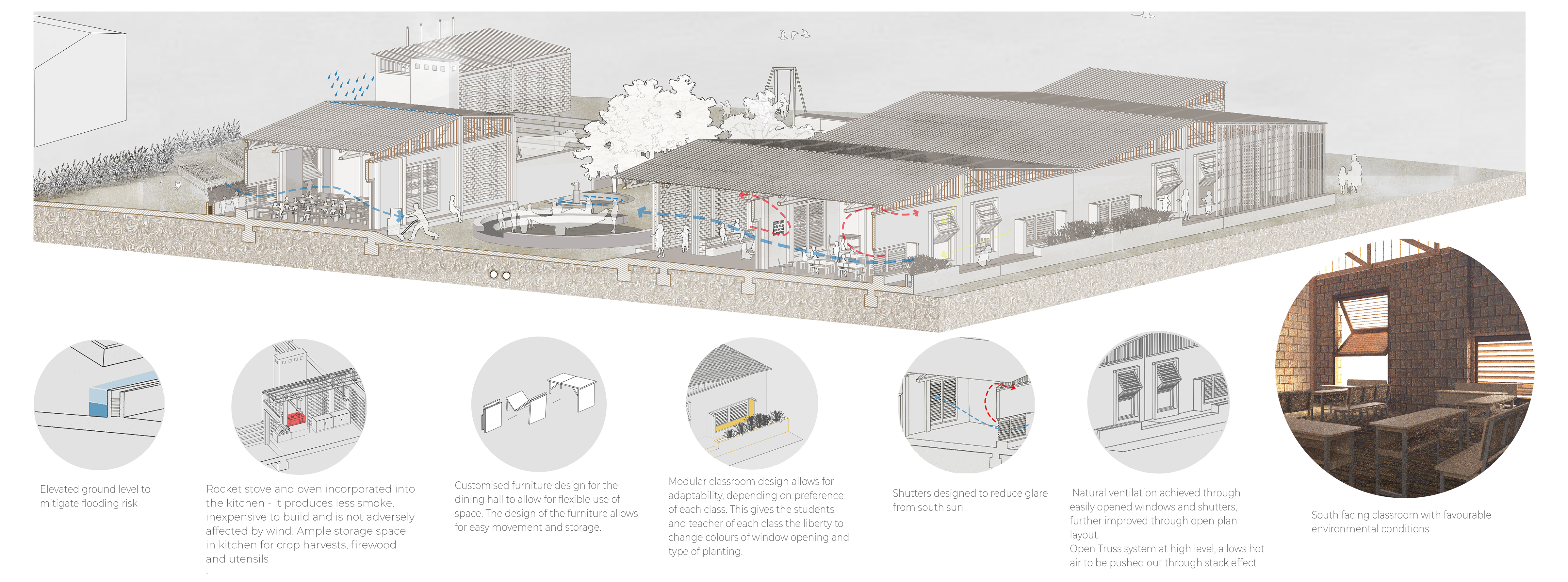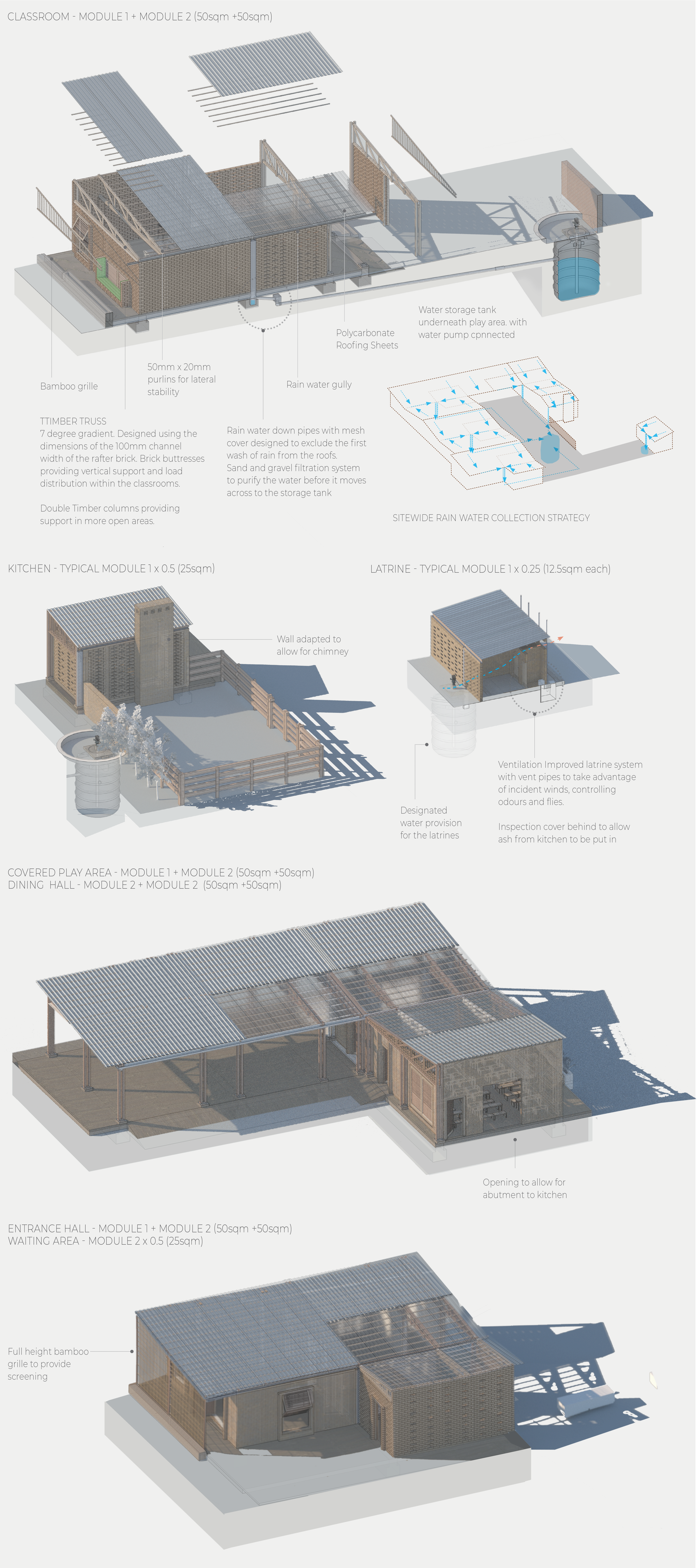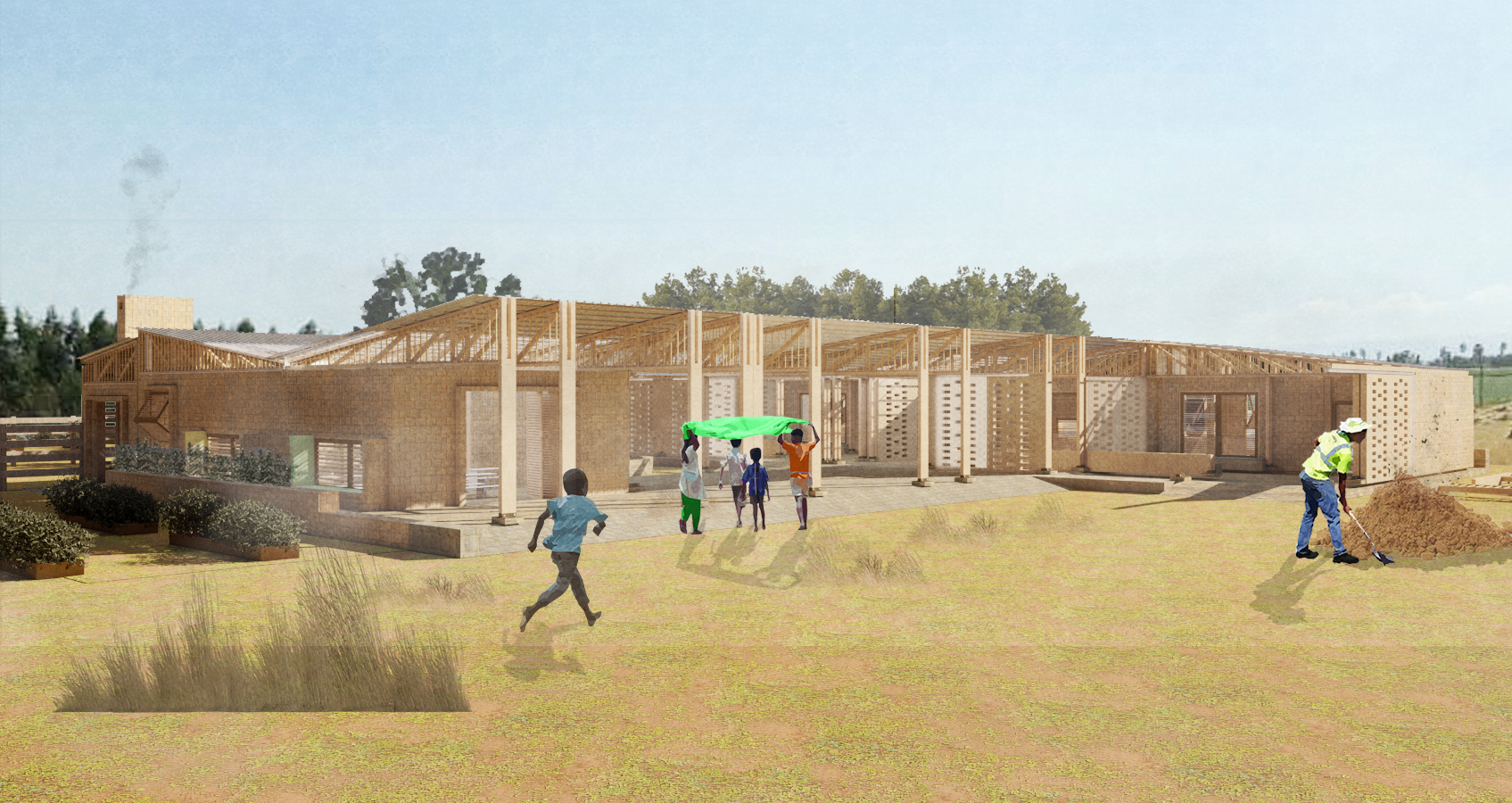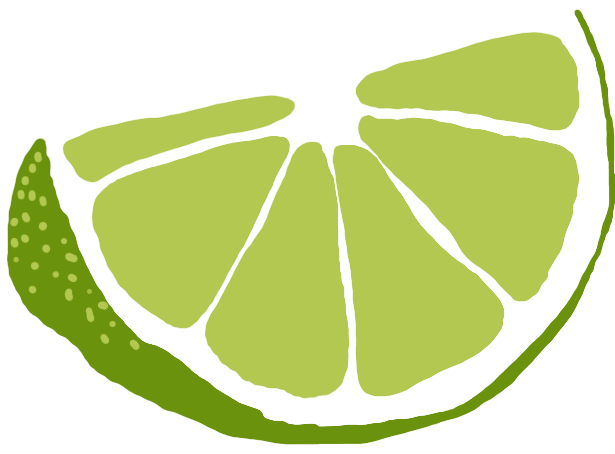Play Garden
CompetitionGroup Project [’21]
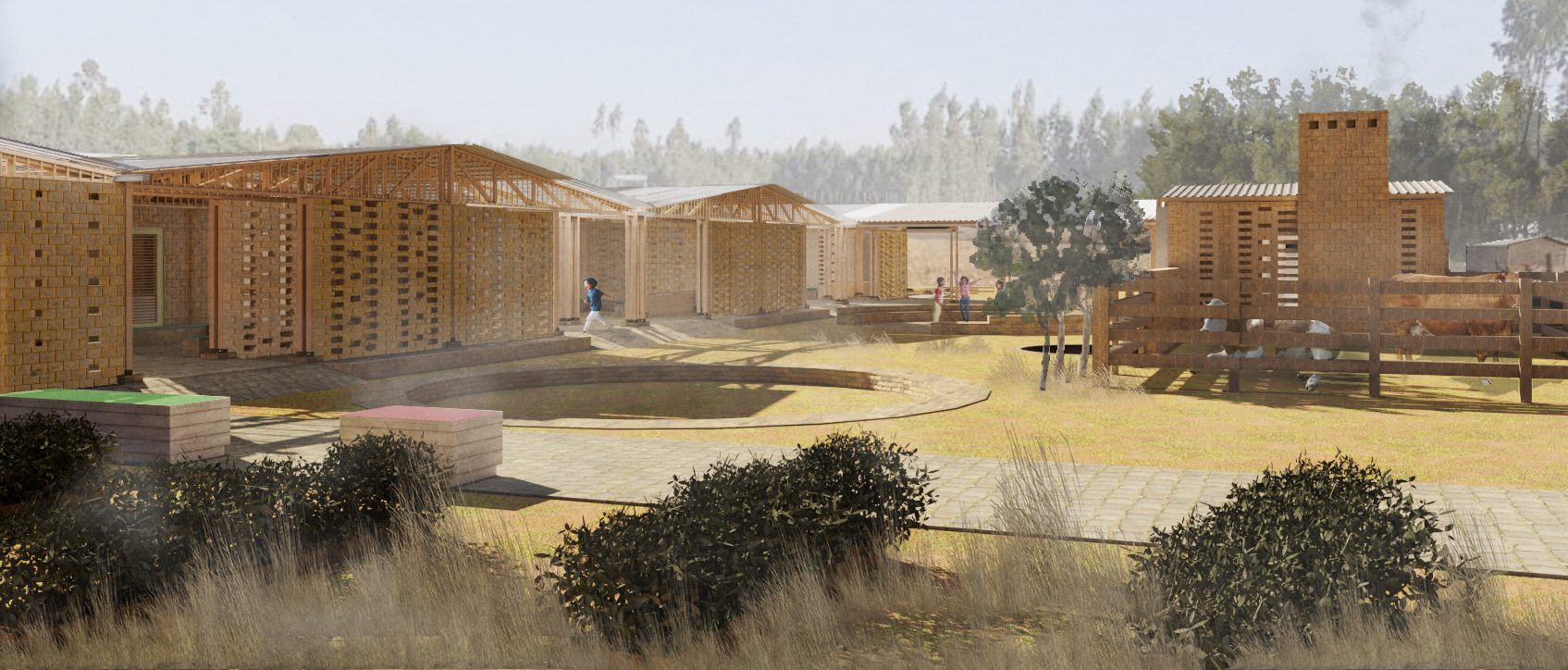
Phased Development
Think of little children exchanging thoughts between fits of laughter, their feet grazing blades of grass as they play on a sunny day, in a space that is many things to them; a happy place, a place of play, a place for creativity, a place of learning and the foundation for unlocking their vast developmental potential. A report released by the Ethiopian Ministry of Education in 2014 highlighted that only 25% of Ethiopia’s 7.4million children of pre-school age could attend school.
The 2030 Agenda for Sustainable Development set out by the United Nations, covers this pressing issue extensively. Goal Number 4 on equitable education, necessitates the creation of sensitive learning spaces that ensure the effective delivery of equitable, quality learning. Our project for Hiddi and Dillu in Ethiopia, aims to build on the foundation the charity Abay Ethiopia have laid, by creating a replicable preschool that prioritises creative and collaborative learning and community development.
Think of little children exchanging thoughts between fits of laughter, their feet grazing blades of grass as they play on a sunny day, in a space that is many things to them; a happy place, a place of play, a place for creativity, a place of learning and the foundation for unlocking their vast developmental potential. A report released by the Ethiopian Ministry of Education in 2014 highlighted that only 25% of Ethiopia’s 7.4million children of pre-school age could attend school.
The 2030 Agenda for Sustainable Development set out by the United Nations, covers this pressing issue extensively. Goal Number 4 on equitable education, necessitates the creation of sensitive learning spaces that ensure the effective delivery of equitable, quality learning. Our project for Hiddi and Dillu in Ethiopia, aims to build on the foundation the charity Abay Ethiopia have laid, by creating a replicable preschool that prioritises creative and collaborative learning and community development.
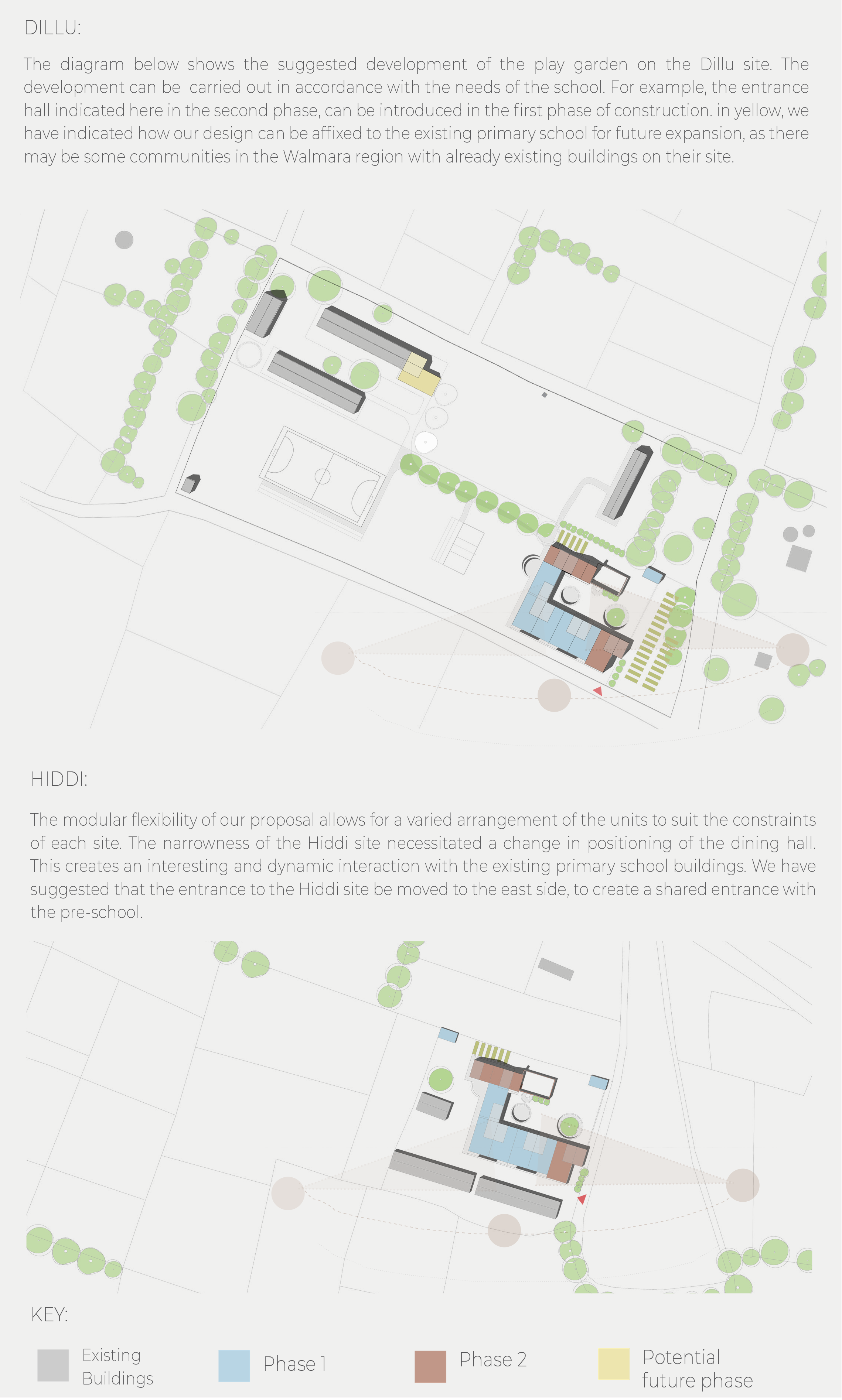
Design Strategy

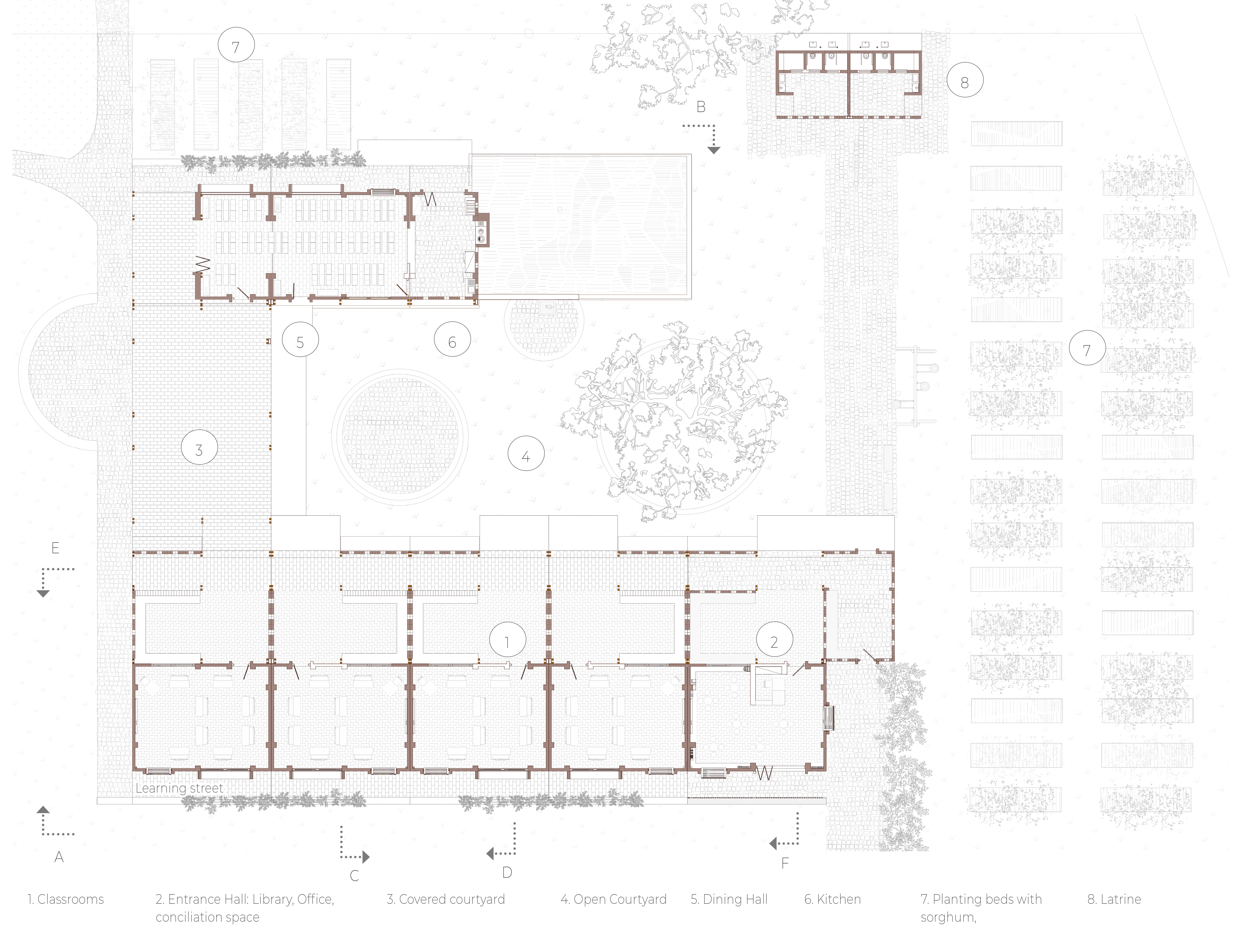


PROPOSAL
The Play Garden aims at encouraging the curiosity and imagination of children through play and sustained contact with the natural environment. It’s simplest unit is a module adaptable to the programmatic needs of a classroom, kitchen, and dining, nestled in a productive landscape. For the classroom, the module gives way to a decentralised series of spaces to the scale of a child, with access through a perforated veranda abutting a semienclosed area for informal learning.
This leads to the fully enclosed learning area, lined on the exterior with an open street, used both as a route and as an inhabitable space. This module is a replicable form that allows for simultaneous learning and play, and it draws from Ethiopian education culture, hinged on interaction-based activities for children, including traditional games and songs.
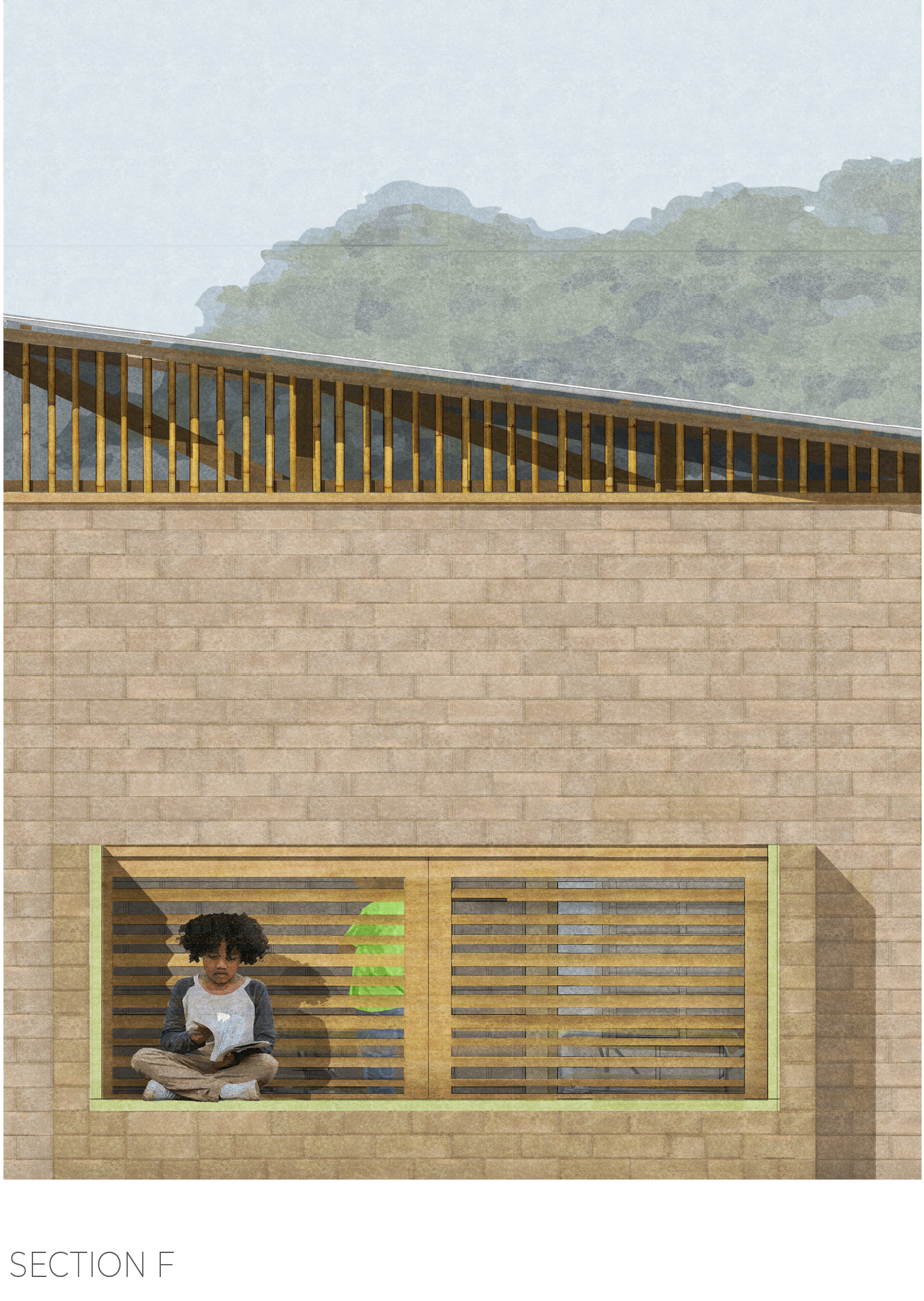
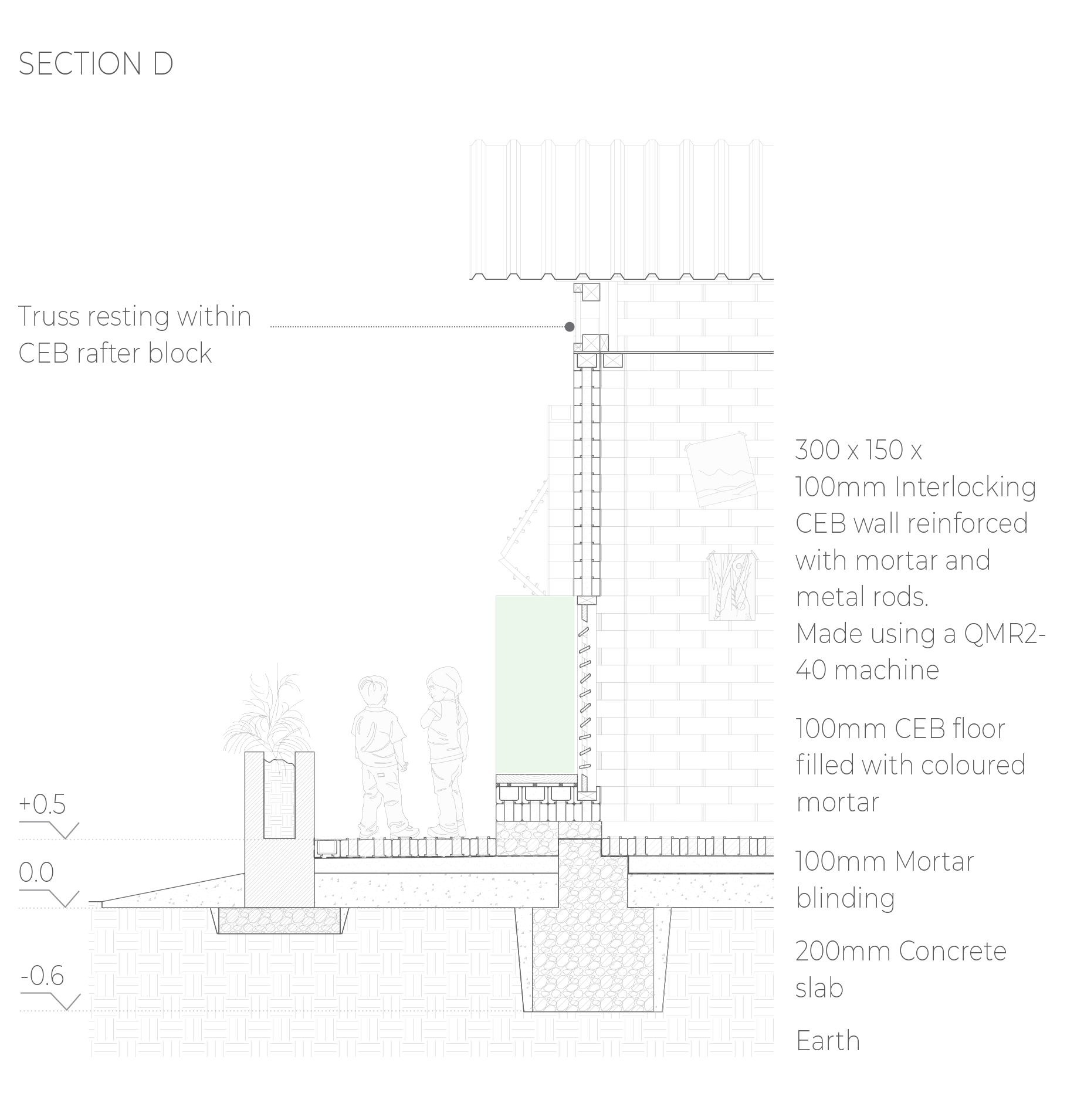
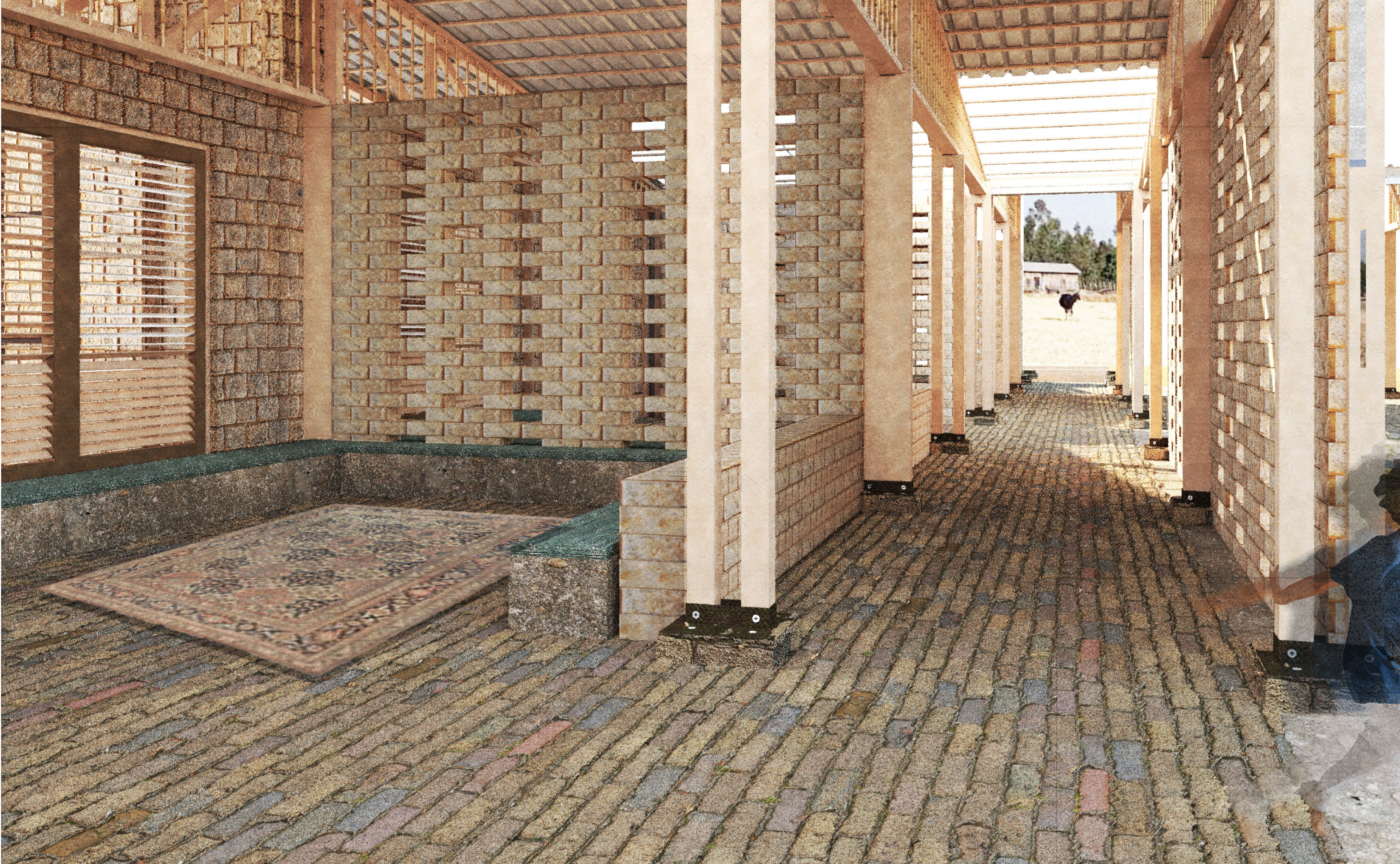
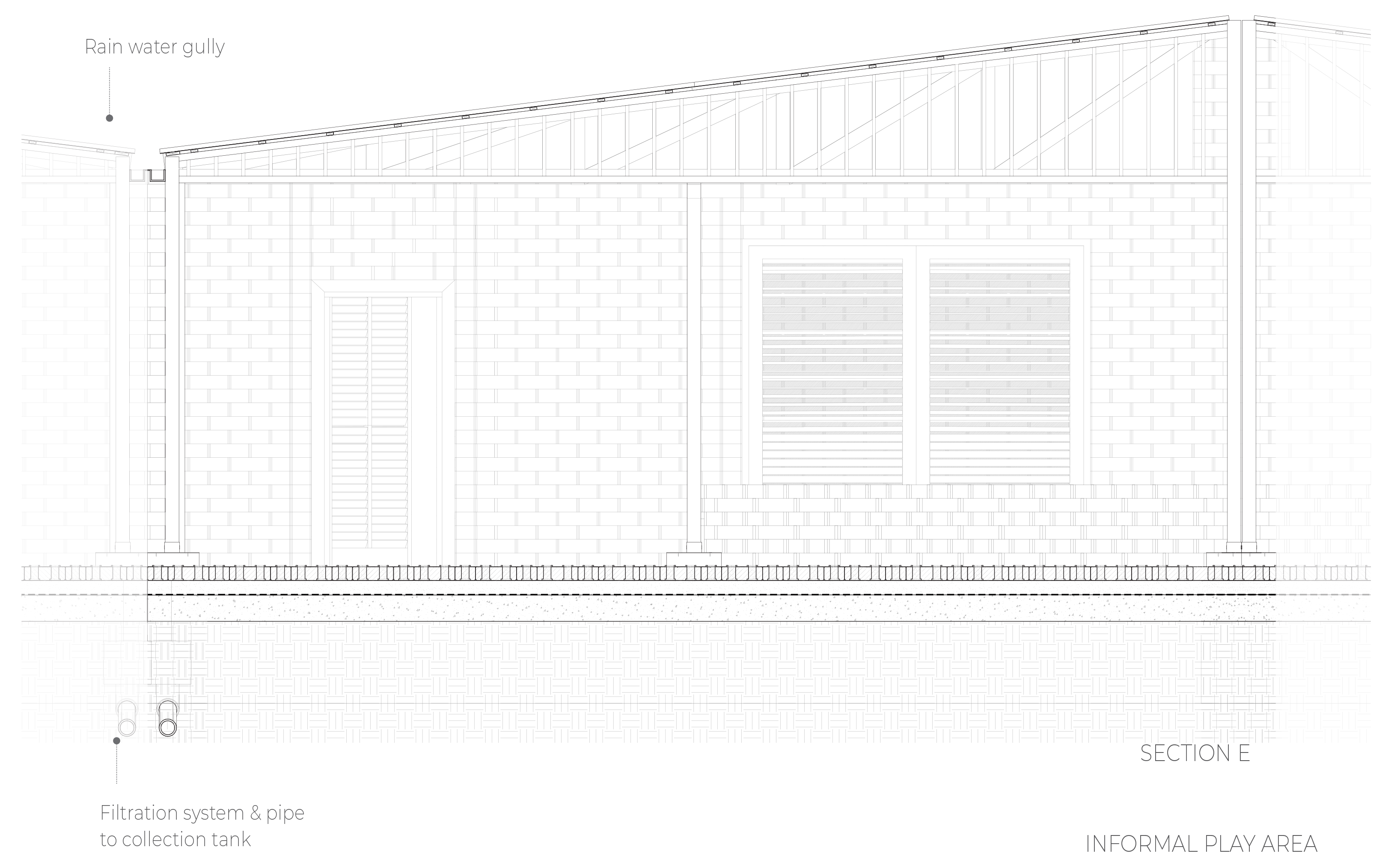
CONSTRUCTION
The spaces are made possible by a careful interplay of Eucalyptus wood, bamboo and interlocking compressed earth blocks, chosen for their ease of use and availability in Walmara. Mono-pitched metal roofs further allow for an efficient water collection strategy, through a sandfiltration system into a storage tank underneath the courtyard. By building on known construction methods, members of the local communities are empowered with skills through socially responsible practices that efficiently manage community resources.
The goal is to foster a sense of inclusiveness within the community through the intersection of responsible developmental practices and education. We want to promote a culture of education that allows for self-expression through play, whilst upholding the tenets of Ethiopian culture.


